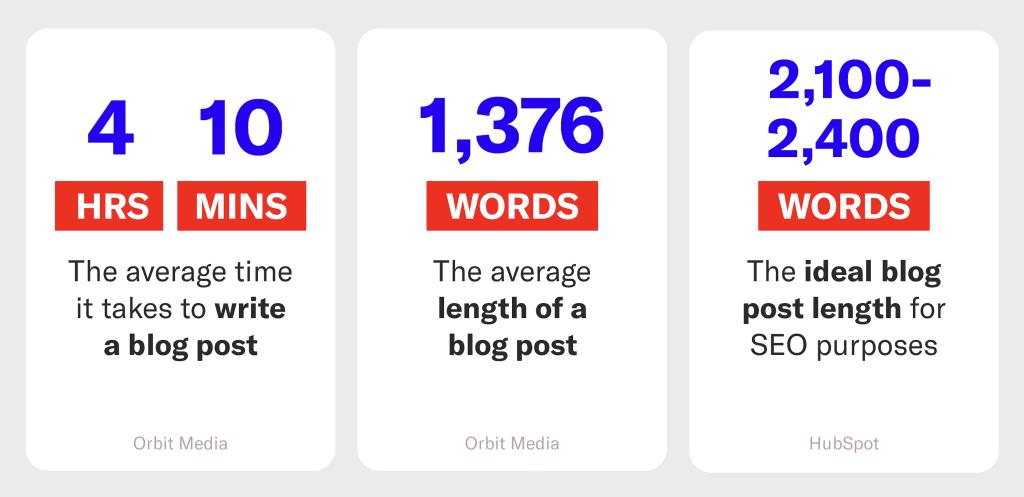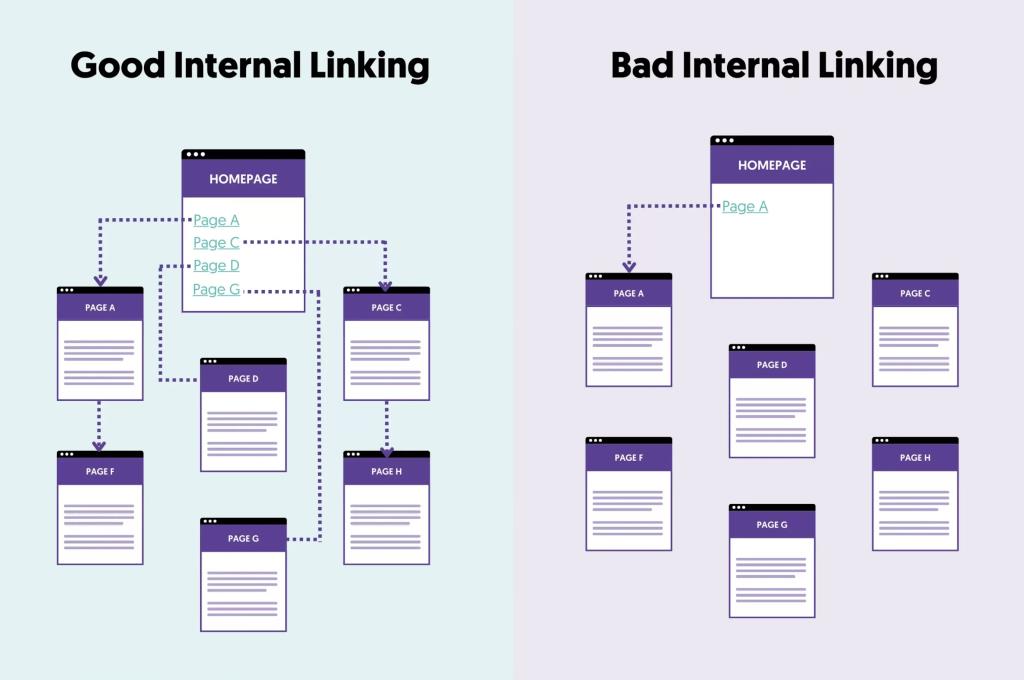You might think blogging is a small task on your marketing checklist. But when done regularly and with purpose, it can drive serious traffic to your website. Consistent blogging for SEO builds authority, trust, and visibility. You set the stage to rank higher, earn more clicks, and attract the right kind of attention from decision-makers.
Let’s discuss why consistent blogging matters, what it requires, and how you can make it work without burning out.
Quick Takeaways
- Search engines favor fresh, relevant content, and frequent posts signal ongoing activity.
- Regular blogging builds topical authority, helping your site appear for multiple related terms.
- Every post creates a new entry point for visitors to discover your site via search.
- Internal linking across a blog keeps visitors browsing, boosting session length and engagement.
- Consistency creates trust—both with readers and with algorithms that power search rankings.
Why Regular Posting Matters
Search engines like Google want to serve useful results. Regular blogging shows your website is active. Each post gives crawlers more reasons to index your site, and that creates a network of pages ranking for different topics.
For example, writing a post each week about industry trends means you cover more long-tail keywords than if you post once a quarter. You may not rank for ultra-competitive terms, but you’ll show up for dozens of niche variations.
Remember that time you looked up a question and landed on a blog post from 2019 that still solved your problem?
That’s evergreen content working for minor SEO. But when your latest post tackles the newest trend, search engines see your site as current—and that can boost visibility.

Image source
How Topical Authority Helps You Rank
Think of your blog as a library. If most of your posts are about a single topic, you get labeled as an expert in that area. Say you blog about marketing automation, inbound strategy, and conversion rate optimization. That signals authority. Search engines will be more likely to show your content for related queries.
Your blog isn’t a bunch of standalone pages. It should be a massive web of related content. If you cover “email nurture series” and link to your “lead scoring” post, you’re guiding readers (and algorithms) through a network of expertise. That makes each post stronger.
That’s why consistent blogging, especially around related topics, builds credibility that grows over time. You don’t need a few viral posts. You need steady posts that reinforce your subject area.
Every Post is a New Entry Point
People type long phrases into search engines—questions like:
- “how to set up email campaigns”
- “Is SEO changing”
- “best CRM workflows in 2025”
- “why am I not getting enough followers IG”
If you answer these topics, you capture those searches.
A new post targets the phrase, ranks, and brings in traffic. Next month, you publish another post targeting a related term. That adds another doorway. Over time, your site accumulates dozens or hundreds of entry points. Even if each one brings a small amount of traffic, it compounds across all posts.
Internal Linking Makes the Whole Site Stronger
When you publish regularly, you create chances to interlink posts. Suppose you wrote a post last year on “lead magnets.” Now you publish one on “eBook vs. checklist.” You link from the new post to the old one, guiding readers deeper into your content.
That internal linking helps in two major ways: it distributes page authority and it keeps readers browsing longer. Cached pages link together, sending positive signals to search algorithms. And time-on-site increases because people follow links to read more.
That’s what we want—search engines see active users, and that reinforces your rankings.

Image source
Trust Is Built Through Consistency
If someone asks, “Do you blog regularly?” and your answer is “sometimes,” it’s time to reconsider your writing/posting schedule. When viewers see fresh, weekly posts, they assume you care about your topic.
That feeling extends to SEO. When search engines see a site update frequently with relevant content, it signals legitimacy. The site becomes a go-to source. Trust builds from consistency. Over time, recurring blog updates help you create a reliable brand image.
How to Maintain a Regular Blog Rhythm (Without Burning Out)
Steady posting takes effort. You have to come up with ideas, draft posts, design visuals, and edit. Here’s how to keep it realistic:
- Create a content calendar. Map out at least a month’s worth of topics. That prevents panic the night before a deadline.
- Batch tasks. Spend one afternoon writing three posts or sketching. That smooths out the rough days.
- Repurpose existing content. Turn a webinar summary, ebook chapter, or product guide into a blog post with minor tweaks.
- Invite guest contributions, like a vendor or partner. Just make sure they align with your plan.
You’ll avoid scrambling and stay a lot more consistent. Plus, your team stays engaged instead of overwhelmed.
Measuring Progress on Your Blog
Consistency is only valuable if it moves the needle. Here’s what to track:
- Organic sessions per post. Did traffic increase within a few weeks of posting?
- Rankings across related keywords. Is your visibility improving over time?
- Link growth. Are other sites picking up your content and linking back?
- Engagement signals. Are users spending more time, bouncing less, viewing multiple pages?
Track these monthly. Then tweak your content calendar if some topics underperform. Keep doubling down on what works.
Overcoming Writer’s Block and Topic Fatigue
Coming up with fresh topics gets hard fast. Here’s how to keep ideas flowing:
- Check search suggestions. Type your topic into Google and see what people ask. That’s ready-made inspiration.
- Use competitor research. Read top-ranking posts on your topic and cover a missing angle.
- Interview experts. A 15-minute interview can generate two blog posts.
- Address customer FAQs. What questions are your team answering all the time?
These tactics can renew your content pipeline without feeling forced.
Balancing Quality and Quantity
Frequency matters, but not if you sacrifice clarity or accuracy. A poor post can damage credibility.
Stick to your schedule, but set minimum quality standards: a clear topic, an opening that hooks readers, well-formatted content, and at least one visual or internal link. You don’t need 2,000 words each post. You need useful, readable content that answers a reader’s question well.
Video source
A Blog That Works With You
You might feel overwhelmed by the idea of consistent blogging for SEO. But once you build a rhythm and system, it becomes manageable and rewarding. You’ll bank visibility, grow authority, and get more qualified traffic, all from keeping a steady writing habit!
Don’t forget that your blog isn’t just an expense on your to-do list. It’s a strategic asset that grows over time. Be patient and you’ll see the fruits of your labor quicker than you think.
If you are eager to find content marketing solutions for your brand, check out our Content Builder Service. Set up a quick consultation, and we’ll help you build a blog you’re proud of! Get started today and generate more traffic and leads for your business.
Read More
By: Lauren Basiura
Title: The Importance of Consistent Blogging for SEO
Sourced From: marketinginsidergroup.com/search-marketing/the-importance-of-consistent-blogging-for-seo/
Published Date: Tue, 22 Jul 2025 10:00:44 +0000
Did you miss our previous article...
https://trendinginbusiness.business/business/luxury-lodge-estates-censured-over-misleading-investment-claims-in-sunday-times-advert
.png)





